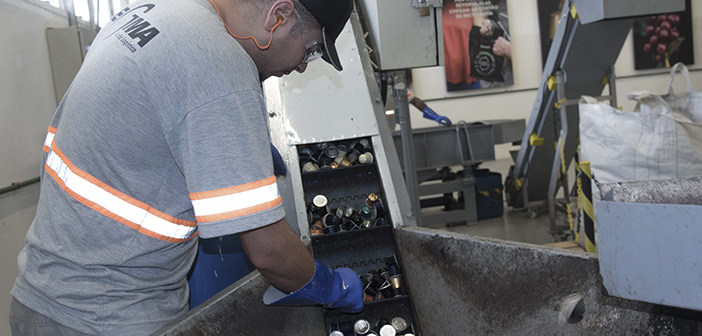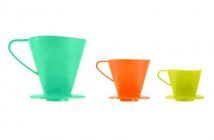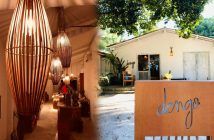The objective is to make consumers more aware so that they may engage more and more in the recycling of coffee capsules
In the world, Nespresso recycles 56% of all its coffee capsules sold. In Brazil, however, these figures are still not very encouraging. In 2017, it was only 13.3% of recycled capsules. The difficulties are many, but the main one is the lack of habit of Brazilian consumers. When asked in our stores if they want to recycle their capsules, the first question they ask is “and what is it good for?”
“Currently, we have 54 points of collection for consumers of the domestic line in Brazil. The used capsules are collected at these points and sent to the Recycling Center through reverse logistics,” explains Nespresso’s coffee and sustainability manager Cláudia Leite. The company is annually investing around 25 million Swiss francs in recycling, worldwide.
Nespresso has just inaugurated a program of public visits to its Recycling Center, located in Barueri, São Paulo. Just sign up for the site or, if you prefer, take the virtual tour, from June at www.nespresso.com.br.
The visits are part of Nespresso’s new shared value-creation campaign.
With a duration of 90 minutes, the visiting program involves the explanation of the entire Nespresso recycling chain. The route includes the visit of the area that performs, without water, the separation of coffee powder and aluminum inside an own development machinery. There are three different machines that have been coupled from the following manufacturers: KIE (mill), MVL (vibrating sieves) and Trans Team (treadmills).
“We have the ability to recycle a lot more, so much so that our recycling center is only working one shift for now. However, our sustainability goals are ambitious,” explains Claudia.

Nespresso – Recycled Capsules
The Positive Cup – Nespresso’s sustainability commitment is based on three major pillars by 2020: the first is to ensure 100% of its coffees are purchased sustainably; the second one is the responsible management of 100% of the aluminum used for the capsules. Lastly, the third one is being a 100% neutral company.
Aluminum Challenge: Bauxite Traceability
According to the president of the Brazilian Aluminum Association, Milton Rego, the great challenge to make the aluminum business in the world even more sustainable is its traceability. “The price of bauxite and aluminum is the same on the world market, regardless of the country of origin. And you have, side by side, countries that have absolutely sustainable mining systems, as is the case in Brazil, Australia and Canada. And others such as Indonesia and Malaysia, where companies do not have the slightest care in the extraction. They are great polluters. It turns out that, since bauxite and aluminum are commodities, their prices are the same. We are working to change this sad reality”, he ends.
Photos and videos: Clodoir de Oliveira



